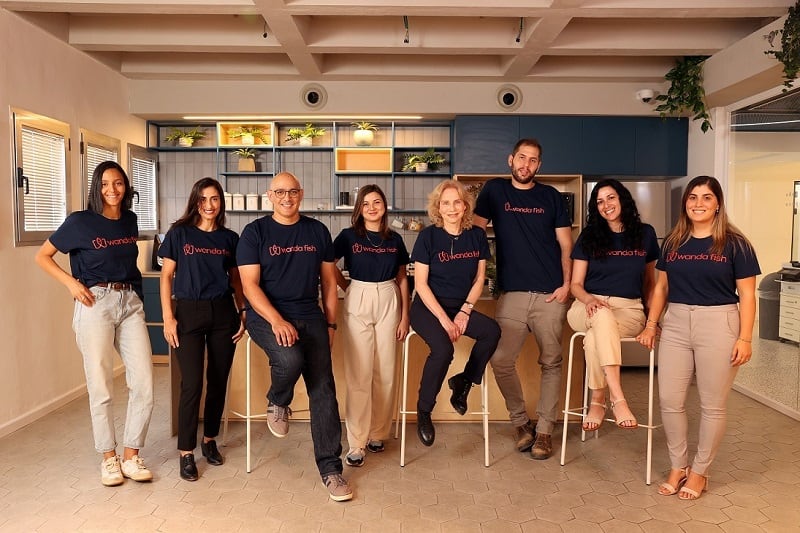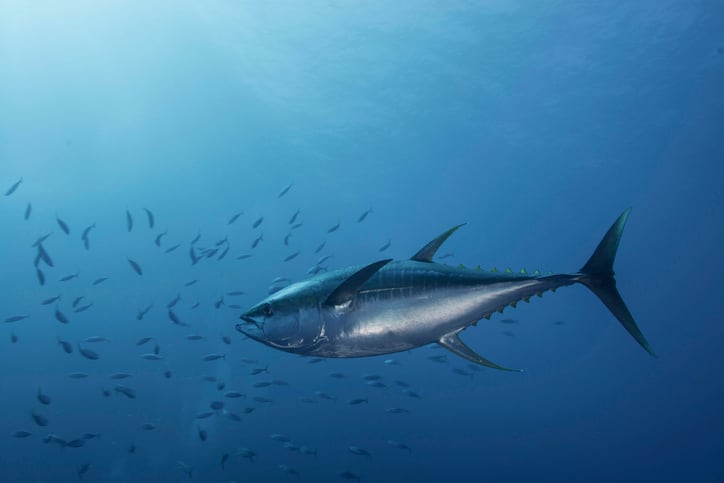Founded in 2021 by The Kitchen Hub, a seed investor and a FoodTech focused incubator, and Daphna Heffetz, a leading figure in biotechnology-based innovation, Israel’s Wanda Fish develops premium quality, cultivated fish outside of the ocean. It said this new injection of capital will boost Wanda Fish’s ability to accelerate the creation and increase the scale of a cultivated whole-cut filet of bluefin tuna.
According to the company, these cuts replicate the texture, flavour, and nutritional value of wild-caught bluefin tuna as they comprise the fish’s muscle and fat cells and contain the same native proteins and fatty acids, including omega-3 and other essential nutrients. As a cultivated filet, Wanda Fish’s bluefin tuna has no common ocean pollutants, like mercury, and is produced under non-GMO standards.
“We are excited and feel incredibly fortunate to collaborate with Aqua-Spark in propelling our venture forward,” said Daphna Heffetz, Ph.D., co-founder and CEO of Wanda Fish. “We are on a shared mission to improve the global food value chain, creating a tasty, more sustainable future for all. This financial backing by leading global venture funds gives us significant leverage to make sustainably cultivated, cruelty-free, and ocean-friendly bluefin tuna a reality.”
Valued for its nutritional content, texture, and flavor, bluefin tuna is an expensive, sought-after species that is particularly popular with high-end sushi restaurants due to its perfect balance of fat and protein.
The emerging field of cultivated seafood
Further driving demand is bluefin tuna’s inaccessibility. Overfishing of bluefin tuna has pushed it to the brink of endangerment, leading governments to significantly limit fishing quotas. Meanwhile, tuna is considered unsustainable to farm due to the feed resources, pen size requirements, and difficulty of breeding in captivity. In addition, tuna is one of the oceans’ most polluted fish, often contaminated with plastic debris and extremely high levels of heavy metals such as mercury, intensifying the need for an accessible, stable supply of sustainable alternatives.
Wanda Fish has made rapid progress on key developmental breakthroughs toward achieving a whole-cut bluefin tuna prototype to provide an abundant, premium source of highly nutritious fish that will alleviate strain on the delicate ocean ecosystem. This includes forming a 3D filet structure using bluefin tuna cells, differentiated into both muscle and fat tissues. With its proprietary technique, Wanda Fish can precisely control fat levels in its end products. This enables the creation of a diverse range of filet cuts, including the highly sought-after Toro premium cut.
The round was led by Netherlands-based global aquaculture investment fund Aqua-Spark, a global investment fund, active in 22 countries with investors across 33 countries, aiming to building a portfolio of solutions across the aquaculture value chain with the ability to transform the industry into one that is healthier, more sustainable, and more accessible. With nearly €500 million in assets under management, each investment is chosen for its potential to generate financial returns while also activating positive environmental and social outcomes.
“In such a burgeoning and innovative sector, we are pleased to welcome Wanda Fish into our portfolio of companies based on the remarkable speed with which they’ve met significant milestones,” said Lissy Smit, CEO of Aqua-Spark. “We firmly believe in a future where sustainably farmed and cultivated seafood will work in concert with one another to alleviate the burden of overfishing, especially species like bluefin tuna which are deemed unsustainable to farm.”
“As the start-up’s incubator, we've had the privilege of witnessing the immense progress Wanda Fish has made since their inception less than two years ago,” added Jonathan Berger, CEO of The Kitchen FoodTech Hub. “Wanda Fish is transforming visionary ideas into a tangible, cutting-edge product that is just steps away from reaching its prototype. This is credited to a skilled and ambitious multinational team led by Daphna Heffetz that is undoubtedly poised for a resounding success story in the thriving alternative protein space; this spells good news for an overburdened marine ecosystem.”



